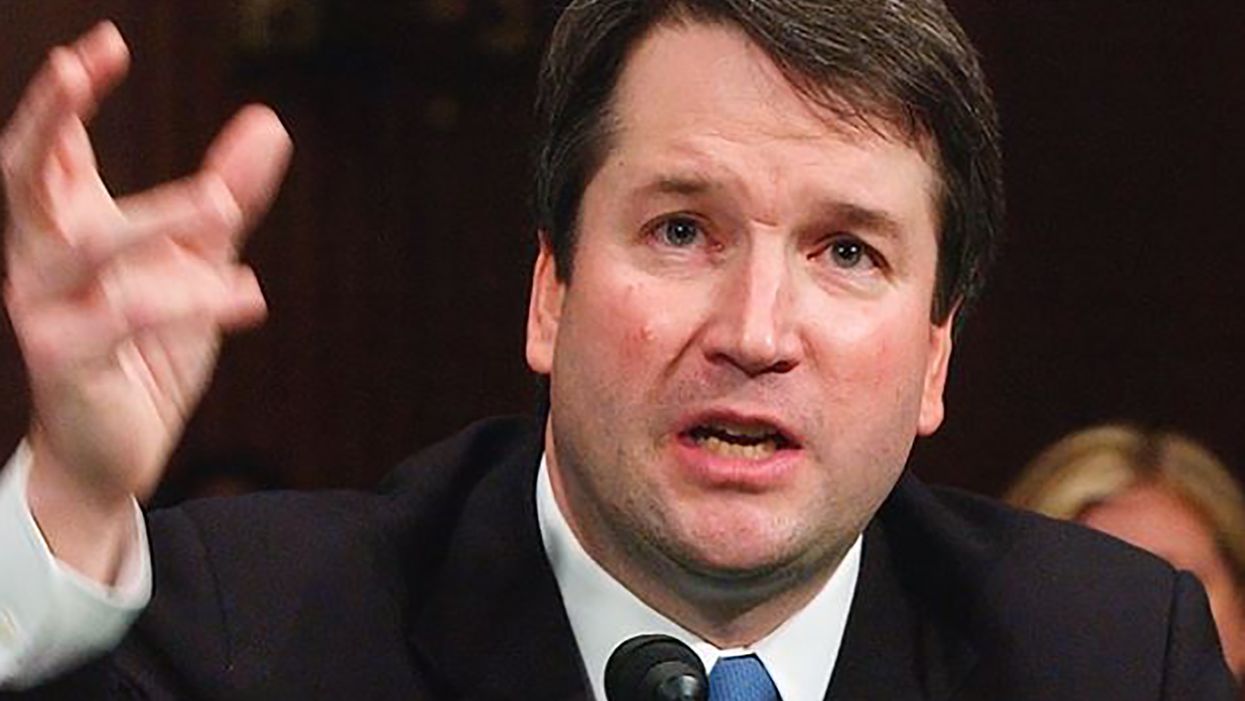The war on drugs is a preview of life without reproductive freedom: columnist


Three days after the United States Supreme Court eliminated the constitutional right to abortion in its 6-3 reversal of Roe versus Wade and Casey versus Planned Parenthood on June 24th, 2022, the High Court issued rare unanimous 9-0 decisions in two cases – Ruan versus United States and Khan versus United States – that upheld overturned convictions of doctors that overprescribed narcotics as outlined in the Controlled Substances Act.
In an editorial in Tuesday's New York Times, addiction and public policy columnist Maia Szalavitz contemplated why the Court's rulings in Ruan and Khan do not cover medically necessary abortion.
"Physicians across the country are struggling to balance the conflicting imperatives of their calling to care with their institutional duty to avoid legal liability, all to the detriment of their patients," Szalavitz wrote. "Medicine is hard to govern with the blunt instrument of criminal law. Human biological processes, including pregnancy, are enormously variable. In many cases, determining the precise moment when someone’s life or health is so threatened that abortion would be legal under a particular law is not an ethically answerable scientific question. And so doctors turn to lawyers, often with no medical experience, to protect themselves from prison."
READ MORE: Mike Pence stumps for 'unborn' personhood
Szalavitz's argument, which is predicated on the underlying principle of the war on drugs that prohibition reduces harm, is that law enforcement's power grab over personal medical choices does exactly the opposite.
"Physicians who prescribe controlled substances like opioids carry a similar burden" to adhering to abortion restrictions that are frequently unscientific and prohibitively vague," Szalavits noted. "They can face decades in prison if prosecutors target them for overprescribing. Although there are cases of bad actors who prescribed opioids for profit, even legitimate physicians may fear being targeted by law enforcement, and research shows that the threat of legal action has a broad chilling effect on the way doctors provide care. The war on drugs shows that when medicine is criminalized and politicized, harm to patients and doctors increases, while the activities that the laws are intended to curb continue or even increase."
The decades-long crusade against substance use and stigmatization of addition "doesn’t allow for nuances that are part and parcel of medicine, such as the fact that some people need large doses of opioids because the enzymes that metabolize drugs vary widely because of genetics and other factors," Szalavits continued, stressing that "criminalization invites suspicion, framing patients as liars. Health care providers, often unconsciously, can become contemptuous of those whose cases may bring legal scrutiny, corroding care."
With Roe gone, patients seeking to terminate – often regardless of the reason, even if the pregnancy is non-viable – "are suspected of having illegal abortions," Szalavitz explained. "Already women say the laws in their state are preventing them from receiving the care they need, including for miscarriages."
The statistics are staggering.
"At least 1,700 women were prosecuted from 1973 to 2020 for stillbirths, miscarriages or exposing their fetus to some actual or perceived risk of harm, including, in many cases, for allegations of drug use during pregnancy. Consequences included lengthy prison sentences and child custody loss, even when there was no proof that the substances caused damage. Many were reported to the police by medical professionals; those targeted were overwhelmingly poor and disproportionately Black," Szalavitz pointed out. But the nightmare does not end there.
"Loopholes in medical privacy laws — often justified by drug enforcement — mean that hospitals have discretion to share records without patient consent. Only 19 states ban warrantless searches of prescription drug monitoring databases, and at the federal level, the Drug Enforcement Administration claims that it should be able to search these databases without a warrant in any state," Szalavitz said. "Almost half of the states define drug use during pregnancy as child abuse, which triggers mandatory reporting to child welfare agencies and can also result in criminal charges. It’s not too difficult to see how similar data could be used to target women seeking abortions or doctors helping with their care."
The consequences of criminalizing abortion have already arrived en mass.
"Physicians are already taking extreme measures to protect themselves from abortion prosecutions, such as ending women’s prescriptions for an immune disorder treatment, methotrexate, because if they get pregnant, it can cause miscarriage," Szalavitz remarked. "The Texas Medical Association recently asked state regulators to act, saying that several hospitals are turning away patients with pregnancy complications for fear of violating the state’s abortion ban. Women who are miscarrying have been left to wait until they have severe bleeding before help is offered. As with the drug war, legal fear is driving doctors to prioritize themselves over their patients’ health."
The Supreme Court "sided with physicians" in Ruan and Khan, having determined that "doctors can’t be convicted as dealers," Szalavitz emphasized. She then rhetorically asked why "this intent requirement would not pertain to abortion cases as well."
Szalavitz's answer is that both target the same fundamental liberty: choice.
"It is already obvious that prosecuting physicians hasn’t ended the overdose crisis. Instead, it scared many into defensive medicine and drove people with addiction and even some pain patients to far more deadly street drugs. Last year, the United States had its highest rate of overdose death, with the majority lost to opioids," Szalavitz concluded. "As with the drug war, criminalizing abortion will increase harm while failing to stop the behavior it is intended to reduce."